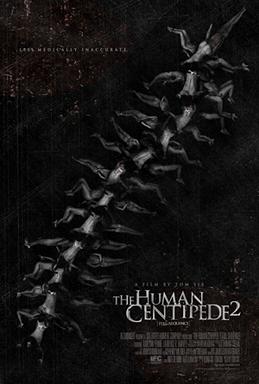
Amandla Stenberg, aka Rue from The Hunger Games gave a performance that really stuck out to me in the film. This is partly due to the stories I've heard about people on twitter complaining about the character being African-American (even though in the book, the character is described as being "dark-skinned"). It's also, however, because she's very adorable and effective in the role even though her screentime is somewhat limited.
What really bothers me about this whole twitter controversy is the fact that the thought was even conceived in the first place. How does anyone get bothered by a minor character from a book being portrayed by black actor? Or a major character? Why would this affect the way you view the movie? And also, how do so many people overlook the fact that the character was supposed to be black? How would this young girl ruin the way you watch this movie?
Stuff like this really showcases the worst in human behavior. Twitter, even though I use it, really brings out the mob mentality in a lot of people. Of course, seeing the "trending topics" on the left side of your screen doesn't help matters much. Everyone wants to chime in on what everyone else is talking about, but how is it that such a disturbing amount of people came together in agreement on this?
Of course there would be some black characters in this movie. How has it gotten to the point where someone gets disappointed by the presence of black characters in any movie, let alone this one? Did it offend people that Mace Windu was black in the Star Wars prequels? Or that Nick Fury was portrayed by a black actor (Actually, both characters were portrayed by Sam L. Jackson, weird how they both came to my mind). The Hunger Games is a film set way in the future, where chances are there would be even more mixed race people than there are today. If anything, The Hunger Games had too many white characters!
I always get annoyed when the subject of race comes up when discussing a movie, unless the movie is about race relations. Should it matter that a movie features only white people? Or all black people? It's funny when you watch a preview of, say, a Tyler Perry movie and someone complains, "Ugh are there ONLY black people in this movie?" How does the one movie featuring only black people bother you?
Having said that, I do have to agree with some who say that African-Americans, Asian-Americans, or even women aren't represented well enough in American movies these days. Almost every mainsteam, big-budget film features only white people, or only white men. The movies themselves do not bother me, as they shouldn't, we shouldn't judge a film based on those types of things unless it's actually relevant. There was a Q&A late last year with a bunch of directors that I think The Hollywood Reporter uploaded onto their site. They do one of these every year and they're really great. The last one featured filmmakers such as Alexander Payne, Bennett Miller, and Steve McQueen, a black British filmmaker. When the subject of lack of African-Americans being represented in American films came up, he had this to say:
"I mean, it's opportunity, isn't it? That's what it's about -- opportunity," the British filmmaker said. "And access, because some people just give up. I'm always astonished by American filmmakers, particularly living in certain areas, when they never cast one black person, or have never put them in a lead in the movie. I'm astonished. It's shameful. How do you live in New York and not cast a black actor or a Latino actor? It's shameful. It's unbelievable."
After he said that, all the filmmakers at the roundtable were completely silent. All of whom I have a lot of respect for. Hearing it from an outsider's perspective (that is, a Brit) is definitely interesting and it does raise a valid point. Why must every character in a mainstream American movie be white? Or, at least, predominantly white? It's not about political correctness, but when you set a film in New York City or any other urban area, it's simply not realistic to not have any minority actors in the film. Again, like I said this doesn't bother me within the context of the film, it's just something to think about. But it's not just that, as I think it's probably natural for a white writer/director (like Woody Allen) who grew up in a surrounding of almost only white people to cast almost only white actors in their films, it would be nice to see more diversity in the films that come out through the Hollywood system from Latino, Asian, and African-American filmmakers. It just seems to make sense, in this day and age, to have more diverse films. It's 2012 and a movie like "Red Tails" gets attention because it's a big budget war film with an all-black cast. We shouldn't be at the point where George Lucas is patting himself on the back for having the "guts" to make a film like that, it's ridiculous.
Then again, when a relatively MINOR character from a popular film/book franchise winds up being black and the twitterverse explodes with anger, maybe we're not ready for that yet. That's the most shameful part of all of this and it really reflects poorly on us as a society.








